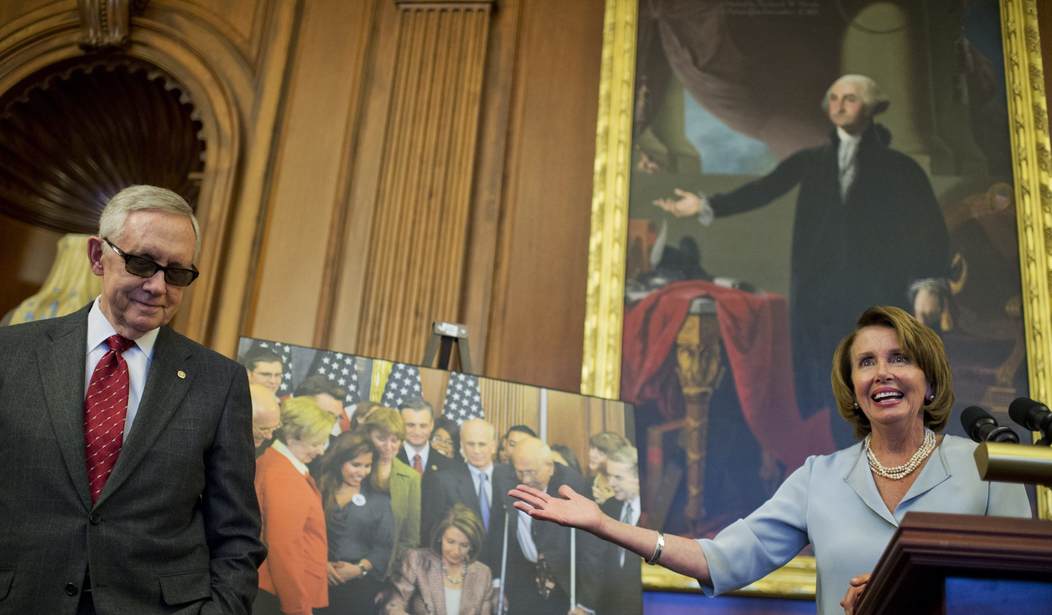The collapsing Rube Goldberg machine known as Obamacare is still throwing off chunks in all directions. Now, because some of its provisions have been removed piecemeal, the debris is threatening to conk lawmakers over the noggin at election time:
Health-insurance premiums are likely to jump right before the November elections, a result of Congress’s omission of federal money to shore up insurance exchanges from its new spending package. Lawmakers from both parties had pushed to include the funding in the $1.3 trillion spending law signed Friday, but they couldn’t agree on details. A battle has already begun over how to cast the blame for the expected rate increases.
Democrats blame GOP lawmakers for the failure of negotiations over the funding, saying Republican leaders demanded the inclusion of abortion restrictions they knew would be unacceptable to Democrats. Republicans say that they negotiated in good faith and that Democrats rejected reasonable rules on abortion.
The finger-pointing comes as health care is expected to be a top issue in this year’s midterm elections. Both parties face political risks, although polls have so far shown voters are more likely to hold Republicans responsible for high costs. In a Wall Street Journal/NBC News poll last summer, when GOP lawmakers were pushing to repeal the Obama-era Affordable Care Act, 43% of voters said Democrats would do a better job handling health care and 26% said Republicans.
This is what happens when a party fails to deliver on its promises. The congressional GOP was swept back into power almost entirely on the backlash against the overreach of Obamacare, and yet when the time came for it to deliver on its “day one” promise to abolish the monstrosity, it failed. So, yeah, price increases are on the heads of the Republicans — because they failed to live up to their word.
Omitting the measures from the spending bill dims the prospects for such legislation this year. While some lawmakers are likely to push for separate legislation, the odds of passage are high amid rifts in Congress over whether to help support the health law as well as on the abortion restrictions.
That deals a blow to insurers who must soon determine what rates to charge next year. Without the payments, insurers may raise premiums or curtail participation in the ACA exchanges. The Congressional Budget Office estimates that gross premiums for a popular middle-priced plan offered through the insurance exchanges are, on average, about 10% higher this year than they would have been if the subsidies to insurers were funded, a figure set to grow to 20% by 2021. The CBO also expects premiums to rise as a result of the repeal of the requirement that most people have coverage or pay a penalty, something that might encourage healthier people to forgo insurance.
In other words, the longer Obamacare lingers, the more it becomes useful to the Democrats as a campaign issue.









Join the conversation as a VIP Member